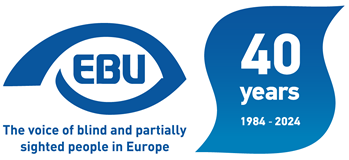European Accessibility Act
On 8 November, in informal negotiations (‘Trilogue’), the European Parliament and the Council reached a provisional political agreement on the text. That is excellent news in itself. Less good is that the scope of the EAA (what had blocked progress in negotiations for so long) is much closer to the Council’s position. See our EAA press release. To nuance our official position, it is worth noting about the shortcomings that, as pointed out by the European Commission in a Disability Intergroup briefing, the built environment is included on a voluntary basis, and while it is true that tourism is not mentioned, some of its components are covered (e.g. through e-commerce obligations).
Pay-able Payment Terminals
See EAA above: payment terminals are covered. So, it will be a matter of monitoring specific standards and their implementation.
Audio-visual Media Services Directive
After the European Parliament’s approval on 2 October, the EU Council approved in turn, on 6 November, the text agreed in Trilogue, which has now therefore been formally adopted. See our AVMSD press release.
Web Accessibility Directive
After the publication of the implementing acts by the European Commission in October, it is worth recalling the following timeline:
- 23 September 2019: websites published after 23 September 2018 have to be accessible
- 23 September 2010: all websites have to be accessible
- 23 June 2021: all mobile apps have to be accessible
- 23 December 2021: first three-yearly report to the Commission from Member States
Silent Cars
Our German member DBSV produced a Questions & Answers document, clearly describing the issues, the legal progress and state of play, and our ongoing concerns.
Automated Driving
We replied to a European Commission public consultation aiming “to support EU countries and the European automotive industry in their transition to connected and automated driving, while ensuring the best mobility environment for the public.” Our message in substance: we count on the Commission to carefully address the needs of blind and partially sighted persons from the outset, according to the Design for All principle.
Horizon Europe:
In a joint letter (at their initiative) with the Federation of European Publishers, we asked rapporteurs and shadow rapporteurs of the most relevant committees of the European Parliament to support amendments aiming to ensure that the need of accessible books for print disabled persons is taken into account in the cultural and creative sector, in the Horizon Europe Regulation. The lead committee (ITRE) eventually adopted these amendments on 21 November. To be continued with plenary vote and negotiations with the Council…
Digital accessibility:
On an initiative of the French Federation of the Blind, who had prepared a set of 10 “digital accessibility tips” and proposed it to us for wider use, almost all of our members active on Twitter have used the same set in their respective languages, in what became an EBU-coordinated sensitisation campaign in November (and still going on).
Rail Passengers’ Rights
On 15 November the European Parliament adopted its position on modernising rail passenger rights. Regarding better assistance to people with reduced mobility, MEPs want the following: assistance free of charge and available at larger stations, without the need to give prior notification; reduced time for pre-notification in case assistance is needed at smaller stations (not quite "turn-up-and-go" everywhere yet, but getting closer) ; clarification of the responsibility of rail operators and station managers for fully compensating passengers, if they have caused loss of or damage to mobility equipment. Next step: EU Council to define its position, before entering into negotiations with the Parliament

